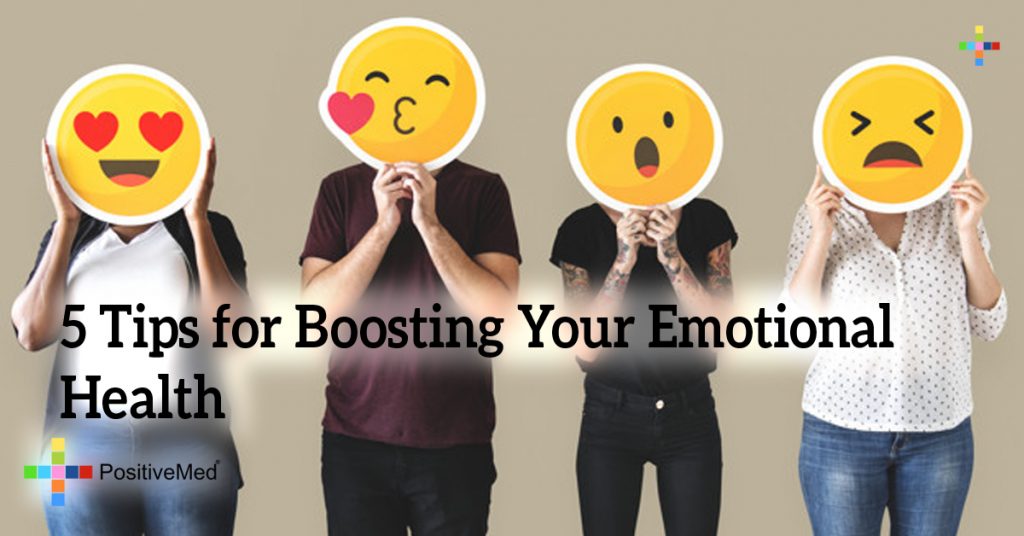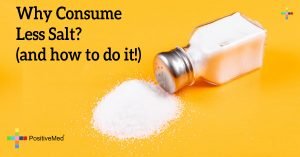
5 Tips for Boosting Your Emotional Health
Being emotionally healthy means addressing psychological injuries such as rejection or failure when we sustain them with the same immediacy with which we treat physical injuries like cuts or scrapes. Taking the correct actions will not only ease our distress and prevent our wounds from festering and getting worse, it will also make us more emotionally resilient going forward.
Practicing these five habits is a simple and powerful way we can all boost our emotional health:
1. Bounce back after a failure: Failure tends to distort our perceptions by making us feel less capable and making our goals appear farther out of reach, which can demoralize us and sap our motivation. The secret to bouncing back from failure is to focus on factors that are in your control. Make a list of anything and everything you can do differently when you try again. For example, beefing up your preparation and planning, making more time and investing more effort, and identifying weaknesses and finding ways to turn them into strengths. Listing aspects of the task or goal that are in your control will not only recharge your motivation it will make you much more likely to succeed in the future.
2. Protect your self-esteem: Studies found that having higher self-esteem increases resilience to stress and anxiety so it is important to protect your self-esteem after it takes a hit (for example when you fail or get rejected). Unfortunately, those are also the times we are most likely to resort to negative self-talk and unnecessary self-criticism. To avoid damaging your emotional health after such ‘injuries’, think of your self-esteem as the armor you wear to the battle of life. You can then focus on beefing up your armor after it sustained damage and avoid poking further holes in it by becoming unnecessarily self-deprecating. By all means acknowledge obvious mistakes if you made them but don’t forget to devote even more attention to what you did well.

3. Break the habit of brooding and rumination: It is natural to make sense of upsetting events by reflecting on them (for example, your boss yelling at you in a staff meeting) but not all such efforts are emotionally healthy. Simply replaying an upsetting scenario over and over again in your head or relaying the same story repeatedly to others will just make you feel angry and/or sad all over again. Worse, it will make you feel helpless, passive, and victimized. The emotionally healthy way to reflect on such events is to focus on what you can learn from the experience. Try to see things from a fresh perspective and then make a list of specific lessons you can take-away from the experience (e.g., Disagreeing with the boss in a meeting will cause him or her to chew me out in front of my colleagues).
4. Restore feelings of self-worth after a rejection: Rejections are very damaging to our feelings of self-worth. It might be natural to think of all our shortcomings when we get dumped by a romantic prospect but it’s not emotionally healthy. To ease our distress and disappointment we need to restore our self-worth. One quick way to do so is to practice self-affirmation. Make a list of the qualities you possess that make you a good relationship partner (e.g., being loyal, supportive, or emotionally available). Then choose one and write a paragraph or two about why the quality is valuable in relationships. Reminding yourself of what you bring to the table will ease your emotional pain and boost feelings of self-worth.
5. Find meaning in loss: Loss is a painful but all too common part of life. Although it always takes time to get over a loss, we also have to make sure we don’t become stuck and that we continue moving forward with our lives. The healthiest way to emerge from loss with emotional strength and resilience is to find meaning in the experience. One way to find meaning—when you feel ready to do so—is to try to identify what you might have gained as a result of the loss. For example, you could try to gain a new appreciation for family, you could try to identify new purpose, and you might consider making changes that will make your life more aligned with this new purpose.
Emotional health doesn’t come easily but once we know where and how to invest our efforts, we can all take steps to improve our wellness and live happier lives.
Author Bio:
 Guy Winch, Ph.D. is a licensed psychologist, keynote speaker, and author. His books, Emotional First Aid: Healing Rejection, Guilt, Failure, and Other Everyday Hurts (Plume, 2014) and The Squeaky Wheel: Complaining the Right Way to Get Results, Improve Your Relationships and Enhance Self-Esteem (Walker & Company, 2011) have already been translated into 14 languages.
Guy Winch, Ph.D. is a licensed psychologist, keynote speaker, and author. His books, Emotional First Aid: Healing Rejection, Guilt, Failure, and Other Everyday Hurts (Plume, 2014) and The Squeaky Wheel: Complaining the Right Way to Get Results, Improve Your Relationships and Enhance Self-Esteem (Walker & Company, 2011) have already been translated into 14 languages.
Dr. Winch also writes the popular Squeaky Wheel Blog on Psychology Today.com and has been featured in The New York Times, Chicago Tribune, Washington Post, Money, Esquire, and other national print media, online on CNN.com, Time, Today, Huffington Post, Salon, Forbes, Entrepreneur and others, on TV morning shows and National Public Radio.
He received his doctorate in clinical psychology from New York University in 1991 and has had a private practice in Manhattan, since 1992. He is a member of the American Psychological Association.





